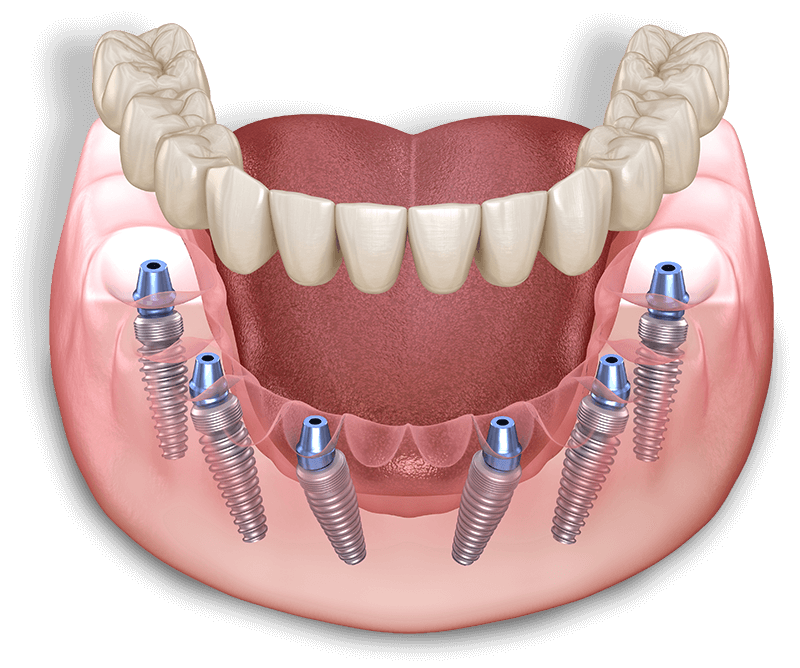This post explains what people mean by the best implants, compares common implant options, and gives clear steps to find the right implant solution for your needs. You’ll learn the criteria experts use to judge implants, which implant types work best in different situations, how tech and labs improve outcomes, and what to ask at a consultation.
What “Best Implants” Really Means
“Best implants” depends on several measurable factors: long-term success rates, strength and durability, biocompatible materials, esthetics, ease of maintenance, and clinical evidence. Success means the implant stays stable in bone for many years without infection, pain, or major complications. Durability covers implant body, abutment, and the prosthetic teeth. Biocompatibility usually means titanium or zirconia — each has pros and cons. Esthetics matter for front teeth; maintenance matters for long-term hygiene and costs. Clinical studies and real-world outcomes help separate marketing claims from reliable results.
Remember: the best implants in Fort Lauderdale, FL for one person might not be the best for another. Health, budget, timeline, and cosmetic priorities all change the answer.
Common Implant Types And When Each Is Best
Single-tooth Implants
Single-tooth implants replace one missing tooth with an implant and a crown. They’re best when you want a fixed, natural-looking solution to restore chewing and appearance without affecting neighboring teeth.
Implant-Supported Bridges
Implant-supported bridges replace several adjacent missing teeth using fewer implants than replacing each tooth. They’re ideal when a span of teeth is missing and you prefer a fixed restoration instead of removable dentures.
Immediate-Load / Full-Arch Solutions (All-on-4, All-on-6)
Immediate-load techniques place implants and attach a temporary full-arch prosthesis the same day. Systems like All-on-4 or All-on-6 are best for people who need full-arch restoration quickly and have enough bone or can be managed with strategic implant placement. Candidates should have good overall health or be cleared by their dentist to qualify.
Mini Implants
Mini implants are narrower and used for temporary stabilization of dentures or when bone volume is limited. They’re less invasive and cheaper, but they usually don’t offer the same long-term durability as standard implants.
Key Patient Factors That Decide Which Implant Is Best For You
Patient health and anatomy guide implant choice:
- Bone quantity and quality — affects whether bone grafting or sinus lift is needed.
- Gum health — periodontal disease must be controlled first.
- Medical conditions — diabetes, immune issues, and smoking affect healing.
- Oral hygiene — poor hygiene raises failure risk.
- Timing and cost expectations — immediate-load options are faster but not always suitable; grafting adds time and cost.
These factors determine if you can get immediate implants or need staged treatment like grafts before final restoration.
How Technology And Lab Work Affect Implant Outcomes
Modern technology improves precision and predictability. CBCT 3D imaging maps bone and nerves so surgeons avoid critical anatomy. Guided surgical planning and 3D-printed guides let implants be placed at exact angles for better load distribution. Digital placement modeling and in-house milling or 3D printing speed up prosthetic fabrication and improve fit and esthetics. Practices that use these tools tend to deliver some of the best implants Fort Lauderdale, FL patients can access because planning and lab control reduce surprises and complications.
How To Choose A Provider Who Delivers The Best Implants
Look for a team with documented experience and a clear workflow:
- Specialty training (prosthodontist, oral surgeon, or experienced implant dentist) and case volume.
- Before-and-after photos and patient reviews showing long-term results.
- Clear breakdown of who places versus who restores the implant.
- Use of CBCT, guided surgery, and a controlled lab workflow.
- Warranty, follow-up care, and financing options.
Ask about clinical success rates and how complications are handled. Practices that combine surgical skill with strong restorative expertise usually deliver the best implants in Fort Lauderdale, FL for predictable results.
Why Some Practices Stand Out For Providing The Best Implants
Top practices combine training, case volume, and an integrated digital lab. In A Day Smile Dental Implant Centers is an example: a team led by prosthodontist Dr. Burak Taskonak that specializes in immediate-load full-arch solutions. The practice emphasizes guided planning, an on-site lab, and a digital workflow that supports same-day restorations. High case volume, advanced tech, and a warranty help deliver durable, esthetic outcomes that many patients consider the best implants Fort Lauderdale, FL can offer.
Questions To Ask At Your Implant Consultation
- Which type of implant is best for me and why?
- Do you use CBCT and guided surgery for planning?
- Who will place the implant and who will restore it?
- What are typical success rates and possible risks?
- Will I need grafting or a sinus lift?
- Is there a warranty, and what does follow-up care include?
- Do you offer financing or bundled pricing for full-arch care?
Conclusion / Next Steps
The best implants are the ones matched to your health, goals, and a skilled team using modern technology. If you want a faster, predictable full-arch option or a long-lasting single-tooth solution, schedule a consultation to get a personalized plan. For those searching locally, asking about the best implants in Fort Lauderdale, FL and the clinic’s digital workflow, case volume, and warranty will help you find the right provider.


